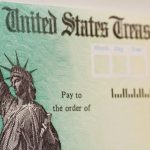**The Necessity of Tax Hikes in French Debt Reduction**
France, like many other countries across the globe, is currently facing economic challenges due to the COVID-19 pandemic and its aftermath. In an effort to stabilize the economy and reduce debt levels, the Central Bank Chief has emphasized the importance of implementing tax hikes as part of the debt reduction strategy. While this measure may be met with resistance and criticism, it is crucial to understand the rationale behind such a decision.
**Economic Rationale for Tax Hikes**
Tax hikes are often seen as a necessary evil to address growing debt levels and fiscal imbalances. In the case of France, where the public debt has surged to unprecedented levels, raising taxes can help generate additional revenue for the government. This additional revenue can then be used to fund essential services, invest in infrastructure, and reduce the overall debt burden.
Moreover, tax hikes can also help promote fiscal discipline and a more sustainable budgetary policy. By increasing tax rates, the government can ensure a more equitable distribution of the tax burden and prevent excessive reliance on borrowing to finance public expenditures. This, in turn, can help mitigate the risk of financial instability and enhance long-term growth prospects.
**Challenges and Considerations**
While tax hikes may seem like a straightforward solution to reduce debt, there are several challenges and considerations that need to be taken into account. First and foremost, any increase in taxes is likely to face opposition from various stakeholders, including taxpayers, businesses, and interest groups. Therefore, it is essential for the government to communicate effectively and transparently about the need for tax hikes and the expected benefits.
Furthermore, the design and implementation of tax hikes must be carefully crafted to minimize potential adverse effects on economic activity and competitiveness. Excessive tax increases could stifle investment, deter entrepreneurship, and hinder economic recovery. Therefore, policymakers must strike a balance between raising revenue and ensuring a conducive environment for growth and innovation.
**Conclusion**
In conclusion, while tax hikes may not be a popular choice, they are a crucial tool in the government’s arsenal to address mounting debt levels and restore fiscal sustainability. By implementing tax hikes in a strategic and responsible manner, France can pave the way for a more resilient and prosperous future. It is imperative for policymakers to engage with stakeholders, assess the potential impacts, and devise a comprehensive tax reform strategy that supports economic recovery and long-term growth.



